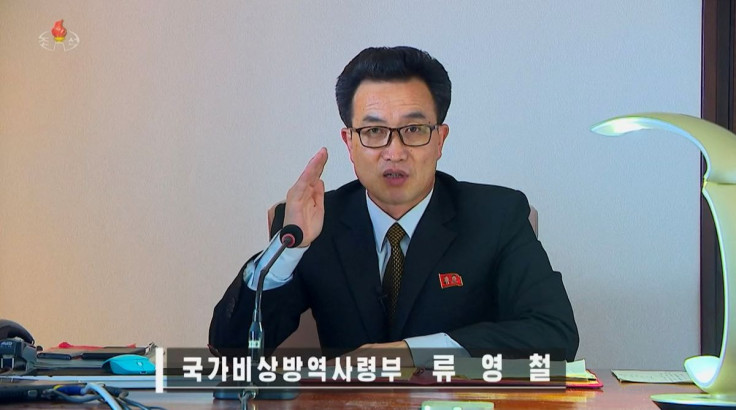North Korea COVID-19 Treatment: Gargle Salt Water, Drink Willow Leaf Tea
KEY POINTS
- North Korean state media advised COVID-19 patients to use painkillers, fever reducers and antibiotics to treat their symptoms
- North Korean citizens were also told to gargle salt water or drink lonicera japonica tea or willow leaf tea three times a day
- The nation reported nearly 2 million suspected coronavirus cases and 63 confirmed fatalities as of Thursday
While several countries are already offering a second booster dose of the COVID-19 vaccine to their citizens, North Koreans are being advised to gargle salt water and drink tea, among other home remedies, to fight the disease amid a spike of suspected cases in their nation, according to reports.
North Korean state media have encouraged coronavirus patients to use painkillers and fever reducers such as ibuprofen as well as amoxicillin and other antibiotics to treat their illness and symptoms, Reuters reported.
The drugs do not fight viruses, but they are sometimes prescribed for secondary bacterial infections, according to the outlet.
In addition to using over-the-counter medicine, North Korean citizens have also been advised to gargle salt water or drink lonicera japonica tea or willow leaf tea — an herbal remedy traditionally used to relieve fever symptoms — three times a day, the Reuters report said.
A study published late last year found that salt water was ineffective at significantly reducing the viral load of COVID-19. Meanwhile, teas may soothe coronavirus symptoms and help keep patients hydrated, but they are not a treatment for the virus itself, the BBC reported.
Vaccination is currently the "safer, more reliable way to build protection" against the coronavirus, according to the CDC.
"COVID-19 vaccination significantly lowers your risk of severe illness, hospitalization, and death if you get infected. Compared to people who are up to date with their COVID-19 vaccinations, unvaccinated people are more likely to get COVID-19, much more likely to be hospitalized with COVID-19, and much more likely to die from COVID-19," the health agency explained on its website.
North Korea, which reported nearly 2 million suspected COVID-19 cases and 63 confirmed fatalities as of Thursday, has a vaccination rate of 0%. The nation, headed by its leader Kim Jong-un, is one of only two countries to still not have initiated a COVID-19 vaccination program, according to the World Health Organization (WHO).
Despite its circumstances, North Korea has sent "no formal requests" for vaccines or other aid to Gavi, the nonprofit organization that procures and distributes vaccines for WHO's Covax program, The Washington Post reported.
The country has also refused bilateral requests, with a South Korean official revealing Thursday that their northern counterparts have given no indication of whether they would accept an offer of aid from the south.
North Korea refused multiple COVID-19 vaccine offers over the past two years and opted instead to close its borders reportedly in an attempt to maintain its "zero COVID-19" approach.
While the U.S. has no plan to share vaccines with North Korea, around 1 billion Pfizer vaccines bought for Covax can be used should the organization be given approval, a senior U.S. administration official said.
North Korea's COVID-19 death toll may top 100,000, and the country's population of 25 million may provide a fertile ground for new variants, experts warned.

© Copyright IBTimes 2025. All rights reserved.





















